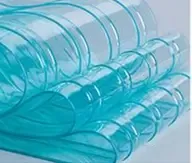- Afrikaans
- Albanian
- Amharic
- Arabic
- Armenian
- Azerbaijani
- Basque
- Belarusian
- Bengali
- Bosnian
- Bulgarian
- Catalan
- Cebuano
- Corsican
- Croatian
- Czech
- Danish
- Dutch
- English
- Esperanto
- Estonian
- Finnish
- French
- Frisian
- Galician
- Georgian
- German
- Greek
- Gujarati
- Haitian Creole
- hausa
- hawaiian
- Hebrew
- Hindi
- Miao
- Hungarian
- Icelandic
- igbo
- Indonesian
- irish
- Italian
- Japanese
- Javanese
- Kannada
- kazakh
- Khmer
- Rwandese
- Korean
- Kurdish
- Kyrgyz
- Lao
- Latin
- Latvian
- Lithuanian
- Luxembourgish
- Macedonian
- Malgashi
- Malay
- Malayalam
- Maltese
- Maori
- Marathi
- Mongolian
- Myanmar
- Nepali
- Norwegian
- Norwegian
- Occitan
- Pashto
- Persian
- Polish
- Portuguese
- Punjabi
- Romanian
- Russian
- Samoan
- Scottish Gaelic
- Serbian
- Sesotho
- Shona
- Sindhi
- Sinhala
- Slovak
- Slovenian
- Somali
- Spanish
- Sundanese
- Swahili
- Swedish
- Tagalog
- Tajik
- Tamil
- Tatar
- Telugu
- Thai
- Turkish
- Turkmen
- Ukrainian
- Urdu
- Uighur
- Uzbek
- Vietnamese
- Welsh
- Bantu
- Yiddish
- Yoruba
- Zulu
Exploring the Versatility and Applications of PVC Soft Film in Various Industries
The Versatility and Applications of PVC Soft Film
Polyvinyl chloride (PVC) soft film has become an integral part of many industries due to its unique properties and versatility. This thermoplastic polymer is known for its flexibility, durability, and cost-effectiveness, making it a popular choice in a myriad of applications ranging from packaging to medical devices. In this article, we will explore the characteristics of PVC soft film, its manufacturing processes, and its diverse applications.
Characteristics of PVC Soft Film
One of the most remarkable features of PVC soft film is its flexibility. Depending on the formulation and processing techniques, PVC can be engineered to achieve a wide range of hardness, from very soft and pliable to more rigid. This flexibility makes it an excellent material for applications that require bending or stretching without breaking.
Another beneficial property of PVC is its resistance to chemicals, moisture, and UV light. This resistance ensures the longevity and durability of products made from PVC soft film, making it suitable for both indoor and outdoor use. Additionally, PVC can be easily colored and printed, allowing for branding and customization, which is essential in today’s competitive market.
Manufacturing Processes
The production of PVC soft film involves several steps, which include mixing raw materials, calendering, and extrusion. The process begins with the blending of PVC resin with various additives, such as plasticizers, stabilizers, and fillers, to achieve the desired properties.
Once the mixture is complete, it can be processed through calendering, where it is passed through a series of rollers to create thin sheets of film. Alternatively, extrusion can be used, wherein the mixture is melted and forced through a die to form a continuous film. After the film is produced, it undergoes further treatments such as printing or laminating, depending on the intended use.
pvc soft film

Applications of PVC Soft Film
The applications of PVC soft film are vast and varied. In the packaging industry, PVC film is commonly used for food packaging, shrink wraps, and vacuum sealing. Its excellent barrier properties help to preserve the freshness of food products, extending their shelf life and reducing waste.
In the medical field, PVC soft film is heavily utilized for manufacturing medical bags, tubing, and disposable gloves. The material’s biocompatibility and sterilization capabilities make it ideal for use in hospitals and clinics, where hygiene is paramount. Furthermore, PVC films are often used in the production of medical blister packaging, providing a sterile barrier between the product and the environment.
Moreover, PVC soft film is also a popular choice in the construction sector. It can be used for waterproofing membranes, window films, and flooring materials. Its durability and resistance to environmental factors make it an attractive option for construction applications.
In addition to these industries, PVC soft film has found its place in the entertainment sector as well. It is often used for banners, signage, and displays due to its vibrant color options and printability. The film can easily be customized to create eye-catching marketing materials and advertising solutions.
Conclusion
In summary, PVC soft film is a highly versatile material that plays a vital role in various industries. With its unique properties, diverse applications, and cost-effective nature, PVC soft film continues to thrive in the market. As technology advances and the demand for sustainable materials increases, the PVC industry is also adapting, exploring new formulations and recycling methods to meet contemporary challenges. Its ongoing evolution signifies that PVC soft film will remain a staple material with a promising future in countless applications.
-
High-Quality PVC Strip Bulk Rolls – Anti-Insect, Plastic & Standard PVC Strip Curtains for Industrial UseNewsJul.08,2025
-
High-Quality Plastic Strip Door Curtain La Gama – Keep Spaces Fresh and HygienicNewsJul.08,2025
-
Plastic Flaps for Freezer Doors – Durable & Efficient Plastic Strips and CurtainsNewsJul.08,2025
-
Industrial Plastic Curtains for Efficient Temperature Control Durable Strip Doors for Butchers & RefrigeratorsNewsJul.07,2025
-
High-Quality PVC Door Curtain – Magnetic & Transparent Options for Efficient SeparationNewsJul.07,2025
-
High-Quality 냉장실용 커튼 for Efficient Cooling Durable PVC Coated Wire Mesh RollosNewsJul.06,2025



